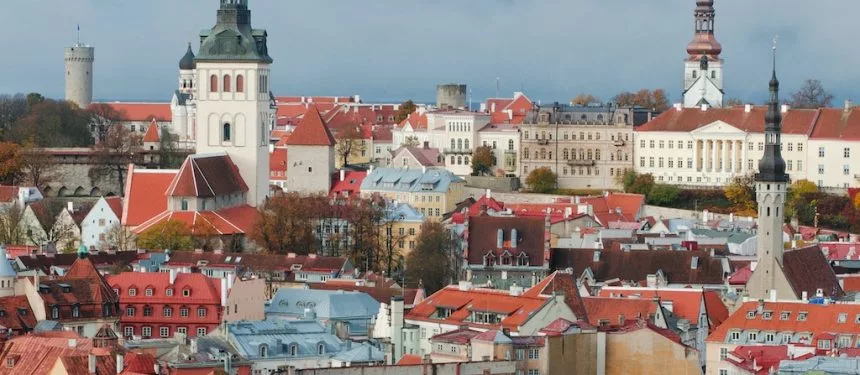[ad_1]
Estonia: economic contribution hits €22.4m
The economic contribution of international students and graduates to Estonia has more than doubled over the past four years, when they added some €10 million to the country’s coffers in 2019.
 Most of the international graduates worked in enterprises based in Tallinn, the report noted. Photo: pexels
Most of the international graduates worked in enterprises based in Tallinn, the report noted. Photo: pexels New analysis from Statistics Estonia has found that in the academic year 2021/22, international degree students contributed €14m and international graduates over €8m in taxes.
The combined €22.4m is up from the €16m international students and grads contributed in 2020/21. The latest survey found that international students paid €9.4m in social tax and €4.6m in income tax, while students who graduated in the 2020/21 academic year and stayed to work in Estonia contributed €8.4m in total as labour taxes.
Last year, employers in Estonia paid a total of €28.5m to international students and €16.5m to international graduates from the 2020/21 academic year.
Slightly more than half of the international students (56%) – about 2,400 – worked at least one day in Estonia during their studies in 2021/22. This contrasts with the 86% of local students that work during their studies.
The report also noted that international students are “more vulnerable” in the labour market when compared with local students, as they often work on less secure contracts and the number of jobs worked is higher. The average pay for international students is €1,273, while for domestic students it is €1,352.
International students also more frequently work in foreign-owned enterprises, but there is no indication that this makes them more vulnerable.
“It should be noted that international students do not work just a few days a year,” data scientist at Statistics Estonia, Kadri Rootalu, said.
“Both local and international students who work are usually employed for longer periods, that is, for more than 90 days.”
“The state should find ways to make sure that all counties benefit from the contribution of international graduates”
The majority of international graduates work in Tallinn, with Study in Estonia pointing to the benefits of more students and more alumni who are earning better salaries.
“It has been one of the goals of our activities to have more motivated international graduates who stay in Estonia after graduation and offer their expertise on the Estonian labour market,” said Eero Loonurm, head of the Study in Estonia program at the Education and Youth Board.
The research indicated that activities to retain international graduates have been successful, with the proportion choosing to stay increasing “significantly in the last year”. Some 63% of international graduates stayed to work in Estonia in the last academic year.
Among international masters students, the proportion working in the country following graduation was 71%, while 62% of international doctoral students did the same.
“However, the state should find ways to make sure that all counties benefit from the contribution of international graduates – the analysis clearly shows that, at the moment, mainly only enterprises in Tallinn and Harju county are benefitting from international graduates,” Loonurm continued.
International #students and #graduates in #Estonia 🇪🇪contribute over €22 million in taxes in the Estonian labour market.
We are glad to welcome university students from all over the world🌍
More statistics: https://t.co/l8PM6Y0WIA#Alumni #highered pic.twitter.com/oUGlDfwKOJ— Study in Estonia (@studyinestonia) February 15, 2023
It also found that information and communication technologies, engineering, manufacturing, construction, business, administration and law international students were most likely to work while studying.
Three quarters of international ICT students worked during their studies in the 2021/22 academic year, researchers highlighted. The least likely to work during studies were agriculture, health and welfare students.
Graduates of ICT and engineering, manufacturing and construction also saw a larger proportion stay to work in Estonia when compared with other courses, which researchers put down to “abundance of companies with an international working environment suitable for graduates in these fields”.
The least likely to work was the cohort of integrated studies students, while 85% of Estonian students of integrated studies are employed. Researchers said this was likely due to the fact that many international integrated studies students are Finnish, and are financially supported by their home country to study in Estonia.
“International bachelor’s students are also less often working than students in other levels of study,” the report added.
“International students holding a citizenship from African and Asian regions are more likely to work alongside their studies. International students with citizenship from northern European countries, especially Finland, are least likely to work.”
[ad_2]
Source link
Meet Our Successful Graduates: Learn how our courses have propelled graduates into rewarding
careers. Explore their success stories here!
Discover More About Your Future: Interested in advancing your teaching career? Explore our
IPGCE, MA, and QTS courses today!

Explore Our Courses: Ready to take the next
step in your education journey? View our
comprehensive course offerings now!

